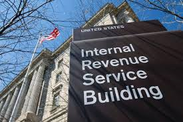The letter included the following passages:
"Making this decision in a timely manner will allow the IRS to implement Congress’s decision without unnecessary disruptions and delays to the upcoming 2015 tax filing season, and it will provide certainty for millions of taxpayers who are affected by the expired provisions."
"The IRS is currently facing a great deal of uncertainty related to the expired provisions, which raises serious operational and compliance risks. Continued uncertainty would impose even more stress not only on the IRS, but also on the entire tax community, including tax professionals, software providers and tax volunteers, who are all critical to the successful operation of our nation’s tax system. This uncertainty, if it persists into December or later, could force the IRS to postpone the opening of the 2015 filing season and delay the processing of tax refunds for millions of taxpayers. Moreover, if Congress enacts any policy changes to the existing extenders or adds new provisions, the IRS would have to reprogram systems and make processing changes, which would result in longer delays. If Congress waits until 2015 and then enacts retroactive tax law changes affecting 2014, the operational and compliance challenges would be even more severe—likely resulting in service disruptions, millions of taxpayers needing to file amended returns, and substantially delayed refunds.”
Several of the expired tax provisions, such as the research tax credit and bonus depreciation, have been passed by the House of Representatives, but the measures are currently going nowhere in the Senate. It is unlikely that the Senate will address the issues again until after the midterm elections in November.



 RSS Feed
RSS Feed